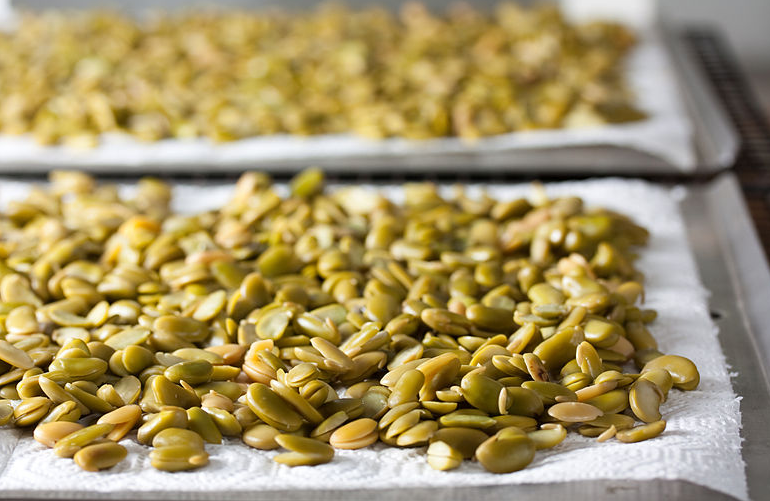The decision of the EU authorities would alleviate the current situation for Monsanto. Some farmers and agricultural companies in Europe previously refused to buy soybeans without approval of the EU officials to start importing the crop after ripening.
EU officials said that Monsanto’s soybeans have been thoroughly tested with the assistance of the European Food Safety Authority (EFSA). The approval’s duration is 10 years, but it does not include authorization for cultivation of these soybeans in the EU.
Monsanto itself noted that the full launch of production of genetically modified soybeans is scheduled to begin in 2017, and more than 6 million seed acreage are expected to be sold in the US for the entire year.
It is known that the company’s development is basically genetically modified beans, which are protected from powerful chemical pesticides. The company took up active promotion of the novelty in order to increase profits on the background of falling world prices for grain.
It is worth noting that the debate about dangers of GMOs continues unabated in the world. Genetically modified crops have a controversial history, especially when it comes to the issue of safety for the environment and human health.
In January, MEPs asked the EU Commissioner for Health not to let Monsanto use glyphosate herbicide. WHO later said that glyphosate can contain carcinogens.
The United States is accusing Europe of trying to undermine food security in the world. The EU proposes new rules that will allow any of the 28 members to abandon Brussels’ decision to allow cultivation of genetically modified crops.
In an interview with the Financial Times, Tom Vilsack, US Secretary of Agriculture, said that this step has caused "serious concern" about future negotiations on The Transatlantic Trade and Investment Partnership (TTIP).
"If we are serious about global food security, then we must also be serious about science, which will allow us to be maximally productive," - said Vilsack on the eve of the meeting of G20’s Ministers of Agriculture, during which they will discuss issues related to improving food security in the world.
"The EU's decision potentially creates a serious obstacle to solving the problem of food security in the world", - he said in an interview with the FT.
"In our opinion, this is at odds with the view that we need a system based on science and laws," - said Vilsack. In recent years, the world has made progress in addressing problems such as malnutrition and food security, he said. Yet 850 million people in the world still starve. Since the world population continues to grow, and negative effects of the climate change are looming on the horizon, we need to do more.
source: wsj.com, ft.com
EU officials said that Monsanto’s soybeans have been thoroughly tested with the assistance of the European Food Safety Authority (EFSA). The approval’s duration is 10 years, but it does not include authorization for cultivation of these soybeans in the EU.
Monsanto itself noted that the full launch of production of genetically modified soybeans is scheduled to begin in 2017, and more than 6 million seed acreage are expected to be sold in the US for the entire year.
It is known that the company’s development is basically genetically modified beans, which are protected from powerful chemical pesticides. The company took up active promotion of the novelty in order to increase profits on the background of falling world prices for grain.
It is worth noting that the debate about dangers of GMOs continues unabated in the world. Genetically modified crops have a controversial history, especially when it comes to the issue of safety for the environment and human health.
In January, MEPs asked the EU Commissioner for Health not to let Monsanto use glyphosate herbicide. WHO later said that glyphosate can contain carcinogens.
The United States is accusing Europe of trying to undermine food security in the world. The EU proposes new rules that will allow any of the 28 members to abandon Brussels’ decision to allow cultivation of genetically modified crops.
In an interview with the Financial Times, Tom Vilsack, US Secretary of Agriculture, said that this step has caused "serious concern" about future negotiations on The Transatlantic Trade and Investment Partnership (TTIP).
"If we are serious about global food security, then we must also be serious about science, which will allow us to be maximally productive," - said Vilsack on the eve of the meeting of G20’s Ministers of Agriculture, during which they will discuss issues related to improving food security in the world.
"The EU's decision potentially creates a serious obstacle to solving the problem of food security in the world", - he said in an interview with the FT.
"In our opinion, this is at odds with the view that we need a system based on science and laws," - said Vilsack. In recent years, the world has made progress in addressing problems such as malnutrition and food security, he said. Yet 850 million people in the world still starve. Since the world population continues to grow, and negative effects of the climate change are looming on the horizon, we need to do more.
source: wsj.com, ft.com





